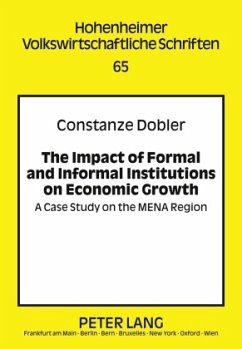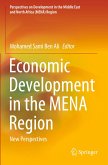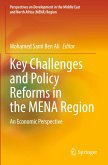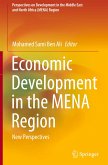Regarding the Arab region, GDP per capita virtually stagnated for more than 20 years from 1980. During the same period, GDP per capita in the world's highly industrialized states further increased and the gap between the Middle East and North Africa (MENA) and the highly developed countries widened. However, the differences between Arab countries and the Western states exist not only economically. The countries also differ regarding their political, legal, and social systems. This work explains the differences in development on the basis of institutional economics. In addition to a general theoretical part, an empirical analysis demonstrates the effects of institutions on income, and a historical case study explains the divergent development paths of the Arab region and selected advanced economies.
Bitte wählen Sie Ihr Anliegen aus.
Rechnungen
Retourenschein anfordern
Bestellstatus
Storno








